By Bashir Hassan Abubakar
Every year the Federal and State Government’s Primary Health Care Development Agencies and World bodies like UNICEF, WHO and other International humanitarian organisations commemorates World Exclusive Breastfeeding Week (WEBW) with lots of awareness creation on the benefits of breastfeeding newborns exclusively, for the first six months after birth.
This practice of Exclusive Breastfeeding (EBF) had been scientifically proven to be critical to a child’s health and growth development. Health experts strongly believed that the first 1,000 days of a child is crucial for physical development and brain growth and that the first 180 days of the 1000 days should be dedicated to exclusive breastfeeding only. It is instructive to note that the 2 critical stages that poses danger to child development are those stages between 0-6 months where the newborn is expected to be exclusively breastfed. Then comes the period after six months when the child is being introduced to some select nutrition dense solid foods to complement breast milk.
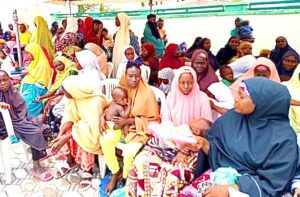
According to health experts, breastfeeding within the first hour of birth protects newborn babies from infections and saves lives. Infants are at greater risk of death when they are partially breastfed or not breastfed at all. Breastfeeding also ensures optimal growth and development and reduces the risk of breast cancer in mothers.
Breast-milk is a critical source of energy and nutrients during illness, and reduces mortality among children who are malnourished.
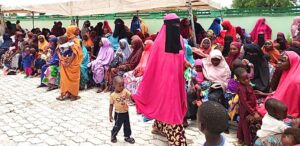
These were some of the key awareness messages that health reporters highlight during EBF week every year and even beyond.
One tends to wonder why the practice of this cheap method of ensuring nutrition in newborns and fortifying them against early diseases is still very low in Bauchi State.
As a matter of fact, Bauchi State has the lowest rate in EBF practice within the North East Region in Nigeria with only 26.4 percent level on EBF (MICS 2021).
Why is the practice of EBF the lowest in Bauchi State? Why are parents not imbibing the culture of EBF, despite consistent awareness campaigns by Government, Partners and Stakeholders on its benefits in the life of a Child in Bauchi State?
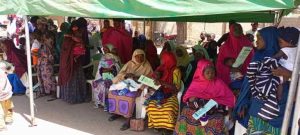
Champions of EBF have, at several engagements, attempted to answer these questions with a view to proffering a lasting solution to the low culture of EBF in Bauchi State.
Apart from the Bauchi State Primary Health Care Development Board (BSPHCDB), one other body that had been relentless in advocating for EBF and championing improved MNCH in the State is the United Nation Children’s Fund (UNICEF).
One of such support to the State provided by UNICEF was equipping Journalists, through capacity building training, with technical skills and knowledge to develop more creative awareness contents on EBF that is aimed to change social behaviour of targeted caregivers.
During one of such capacity building activities to commemorate the 2024 World Breastfeeding Week (WBW), UNICEF Nutrition Specialist, Irene Philomena said that, by now Journalists in the Bauchi Field office focused States should be able to competently carry out innovative awareness campaigns on EBF, Nutrition and other Child Health Promotion.

While brainstorming on how to improve EBF in Bauchi State, both Journalists and resource persons during the media dialogue agree on the need to start targeting male caregivers, grand parents, in-laws and relatives of lactating mothers.
The choice of male caregivers, grandmothers and relatives is being envisaged to change the negative narrative in EBF because of the crucial roles they are playing in family decisions. Time without numbers, grandparents or in-laws stomp their feet and upturned decisions made by couples to practice EBF after delivery. In some cases, due to ignorance of male caregivers on the benefits of EBF, they barred their wives from the practice. Generally, interference from relatives is being identified as one of the major causes mitigating the practice of EBF.
As a practicing Journalist, with special interest in public health, it is really such a morale dampener anytime data is presented with the worrisome indices of MNCH in Bauchi State.
So, after UNICEF 2024 WBW Media Dialogue, our correspondent embarked on a physical awareness campaign targeting male caregivers.
His first port of call was Gumau Community, in Toro LGA. Although the main purpose of the visit was personal, our correspondent saw an opportunity where he could talk to male caregivers about EBF. Their responses varied.
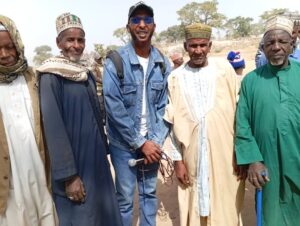
Our correspondent narrated that, “Though I am conversant with the audience, i could tell from their countenance that they are viewing me as a city fellow that comes to promote western culture. I wasn’t deterred by some of the haughty looks from some of them. I talked to them extensively on EBF, its benefits in the first 1000 days of a child’s life and how it protects their newborns against diseases at that early stage of their lives”.
Another opportunity availed itself to our correspondent during an inspection visit of some projects carried out by some civil society organisations in Balesu community of Misau LGA.

According to our correspondent, most of the community people that came out to attend to the visiting team were men of that community and he saw an opportunity to talk to them about EBF.
The engagement with the male caregivers in the Balesu community was yet another eye opener to the influence in-laws have in thwarting the resolve of couples to practice EBF.
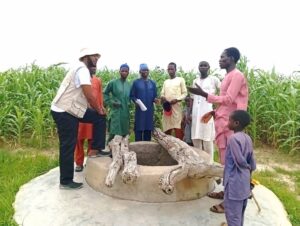
Aliyu Bello, a father of Six said, “I believe in allowing my wife to access antenatal care and other services at the health care facility. She usually shared some of the health talk they were taking through with me. I was convinced of the efficacy of EBF and willing to try it on our children.
“But as much as we tried to imbibe the culture of EBF, my mother always insists on giving our newborns water and pap. Time without numbers, i tried to convince my mother and other relatives, but all my efforts have been abortive”.
“There is a need for sustained advocacy and awareness for in-laws and relatives in households. Although, some VCMs and community resource persons are doing their best in that regard, there is the need to sustain such awareness beyond just during Immunization campaigns”, said Bello.

Aside from Bello, other male caregivers of the Balesu community expressed their delight and enthusiasm in the One-on-One interactive session they had with our correspondent, pointing out that such interactions would go a long way in changing perception on EBF.
Our correspondent also took the EBF awareness campaign to team mates during their weekly aerobic sessions. Despite the elitist nature of such groups, it was obvious that some of them are not aware of the benefits inherent in EBF.
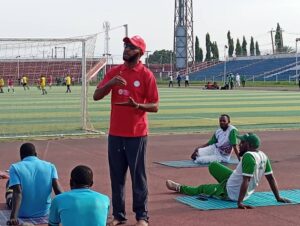
“I targeted three sets of the groups and we shared a ten minute discussion with them on EBF. Though, most of them were aware of the benefits attached to EBF, quite a number of them admitted that they allowed water to be included during EBF periods.
That particular engagement also led to further discussions on maternal and child nutrition, with almost all the team members agreeing that, it is also another monster that is taking the lives of young children and relegating others to stunting, non cognitive child development and other ailments associated with malnutrition.
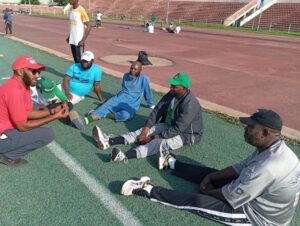
Our correspondent further used the knowledge he garnered over the years as health reporter and shared some useful information to the aerobic teams on Infant and Young Child Feeding (IYCF), where the minimum acceptable diet in children in Bauchi State is only 4 percent (MICS 2021).
With the high cost of living, our Correspondent also urged male caregivers to explore plant-based diets, such as soya beans, groundnuts, beans, and spinach, which are nutrient-rich and can be prepared in various forms—from snacks to meals and drinks.

One outcome that came out of the One-on-One engagement with our correspondent was the willingness of male caregivers to listen to health talk that could improve the health care of their children. With that, it has become imperative for Journalists to carry out such advocacies and awareness campaigns on improved Maternal, Newborn and Child Health (MNCH) beyond the pages of Newspapers.







